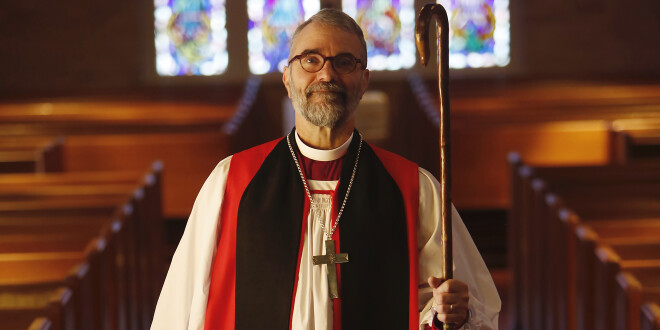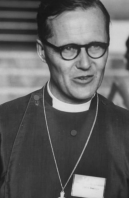Communion Matters X: The Church as a Culture of Gift

A year ago I heard an excellent sermon by Father JD Brown of our diocese at an ordination. He compared the Church to dominos, which involve a knock-on process, one person to the next. You can trace ‘apostolic successions’ of belief from someone to someone else to you to a person you influenced, often a kind of ‘5 degrees of separation’ network. The Church is better thought of as a process, a living interaction, a giving and receiving, than as an entity of a more static kind.
This idea of an on-going process of giving and receiving, of traditio, which literally means ‘handing over’, connects to other aspects of our faith. The concept of grace is equally based on the gift, which anthropologists see as the central feature of many traditional societies. (This idea lives on in family in our culture, which is not (we hope) best understood as the transfer of goods and services. Grace is freely given, and we are defined first of all as recipients. And of course all of this is dependent on Jesus, and his ‘being handed over’ to death and resurrection.
It is easy, but misleading, to think of communion as a thing, something we a have or don’t, say with the Methodists or Roman Catholics (though the question of whom we can share Holy Communion with is a relevant and complicated question). Rather communion is being in a relation of covenant in which we are committed to give and receive in our common life. (If you want a deep meditation on this theme, read the great Orthodox bishop and theologian John Zizioulas’ Being as Communion, which extrapolated from the nature of the Church to that of human existence as a whole). If I may move to a Spanish idiom for a moment, vivir is naturally compartir, something we do with others inherently.
What kind of giving and receiving is the Church? It is the handing on of teaching and example from one generation to another in a parish, or the giving and receiving of compassion on the face of suffering, or even of discipline and exhortation when things get off the rails. But at a more macro-level, it is giving and receiving from one place to another, one generation to another, across time and space. This helps us to give language to the kind of process that we mentioned in our meditation of Newbigin. The Church of one culture gives its discernment, of recognition or questioning, to another. At the same time, since the collection for the saints in Jerusalem, it gives and receives monetary help, its testimony of persecution, its music and art, its lament and complaint at injustice, etc. As this happens, the Church is being brought into being, in the exchange, in the wake of the gift of grace,.




